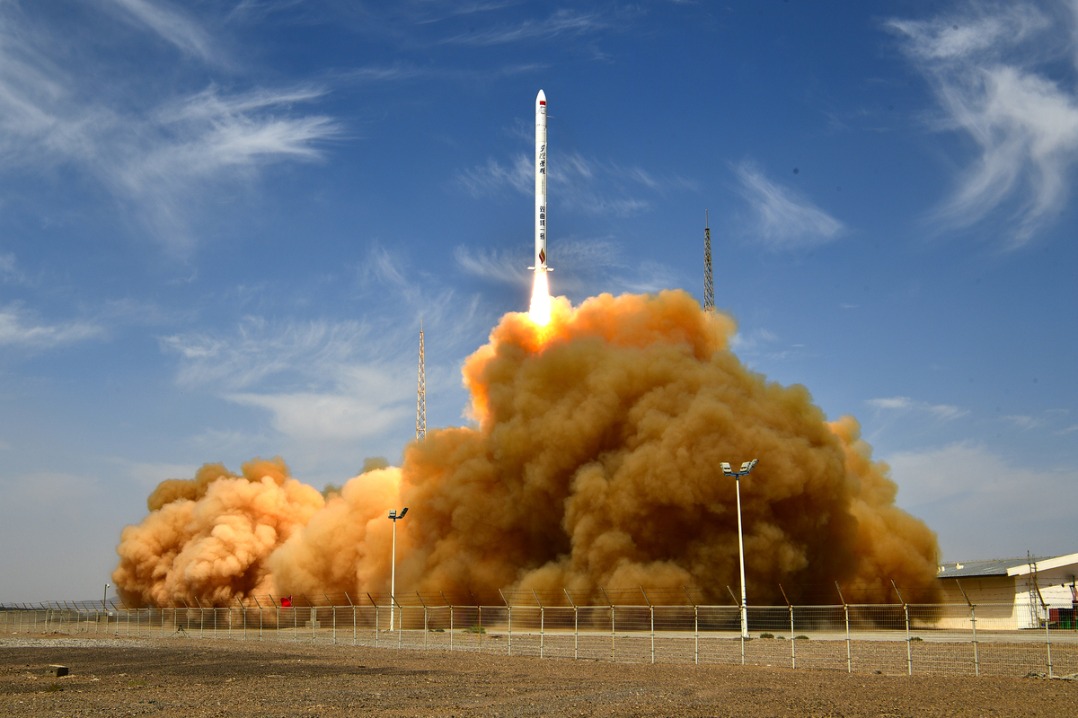Crucial to foster stable China-ROK ties: China Daily editorial

The relations between China and the Republic of Korea have evolved fast over the past more than three decades, marked by a substantial increase in trade and economic interdependence. Bilateral trade has surged by around 50 times since they established diplomatic ties in 1992, with China remaining the ROK's largest trade partner for many consecutive years. The economic interdependence is also underscored by the fact that China received about 40 percent of the ROK's technology exports as of the end of last year.
China has always valued the mutually beneficial relationship with the ROK, describing the country as an inseparable neighbor and cooperation partner. That was reaffirmed once again by Foreign Minister Wang Yi during a telephone conversation on Monday with his ROK counterpart Cho Hyun, their first exchanges after the inauguration of the new ROK government early last month.
Wang expressed the hope that the new ROK government will ensure that its China policy is "stable, sustainable and predictable", without vacillation. Stressing that China and the ROK should work together to elevate bilateral relations to a higher level, he said that the two sides needed to maintain policy stability, as only in this way will the two countries be able to continue to benefit from their strategic cooperative partnership free from external interference.
On his part, Cho said the ROK attaches great significance to its relations with China and will promote greater development of the two countries' strategic cooperative partnership.
All this indicates the two countries are now ready to start from a new beginning to advance their partnership.
Bilateral ties experienced some difficulties during the ROK's previous administration, mainly due to Seoul aligning itself with the "value diplomacy" of the previous United States administration, which led to it making confrontational moves, such as the upgrading of the US' Terminal High Altitude Area Defense missile system and supporting the US' "Indo-Pacific" strategy to contain China.
The adoption of a pragmatic stance by the new ROK administration toward China has been driven by the recognition that sound, stable and ever-deepening China-ROK relations serve the fundamental interests of the two peoples.
In the past, thanks to their good-neighborly and friendly policy toward one another, China and the ROK have been able to transcend their differences in ideology and social systems, and actively advance exchanges and cooperation across various fields.
For example, the China-ROK Free Trade Agreement, which came into effect in 2015, has played a significant role in boosting trade and investment between the two countries. Both countries are currently engaged in negotiations to enhance the liberalization in their services trade and investment, demonstrating their shared commitment to fostering economic growth and cooperation.
However, the evolving geopolitical landscape poses rising challenges to the China-ROK relationship. Since ROK President Lee Jae-myung took office in June, there have been reports that Washington is pressuring Seoul to take on a larger role in countering China, emphasizing the need to modernize their bilateral alliance by beefing up their defense and security cooperation.
This could potentially strain the ROK's efforts to maintain strategic autonomy. The US has also been seeking the ROK's participation in reshaping global supply chains aimed at decoupling from China, a move that risks harming the long-standing economic partnership between China and the ROK.
Looking ahead, it is imperative that China and the ROK join hands to navigate these challenges and capitalize on the opportunities for cooperation. Keeping their industry and supply chains stable and unimpeded, and expanding cooperation in areas such as innovation and climate change can serve as positive steps toward strengthening their partnership.
The China-ROK relationship stands at a critical juncture, where both countries must carefully balance their strategic interests while fostering mutual trust and cooperation. By upholding the principles of good neighborliness, mutual benefit and win-win outcomes, China and the ROK can continue to build a resilient and productive partnership that contributes to regional and global peace, stability and development.
































